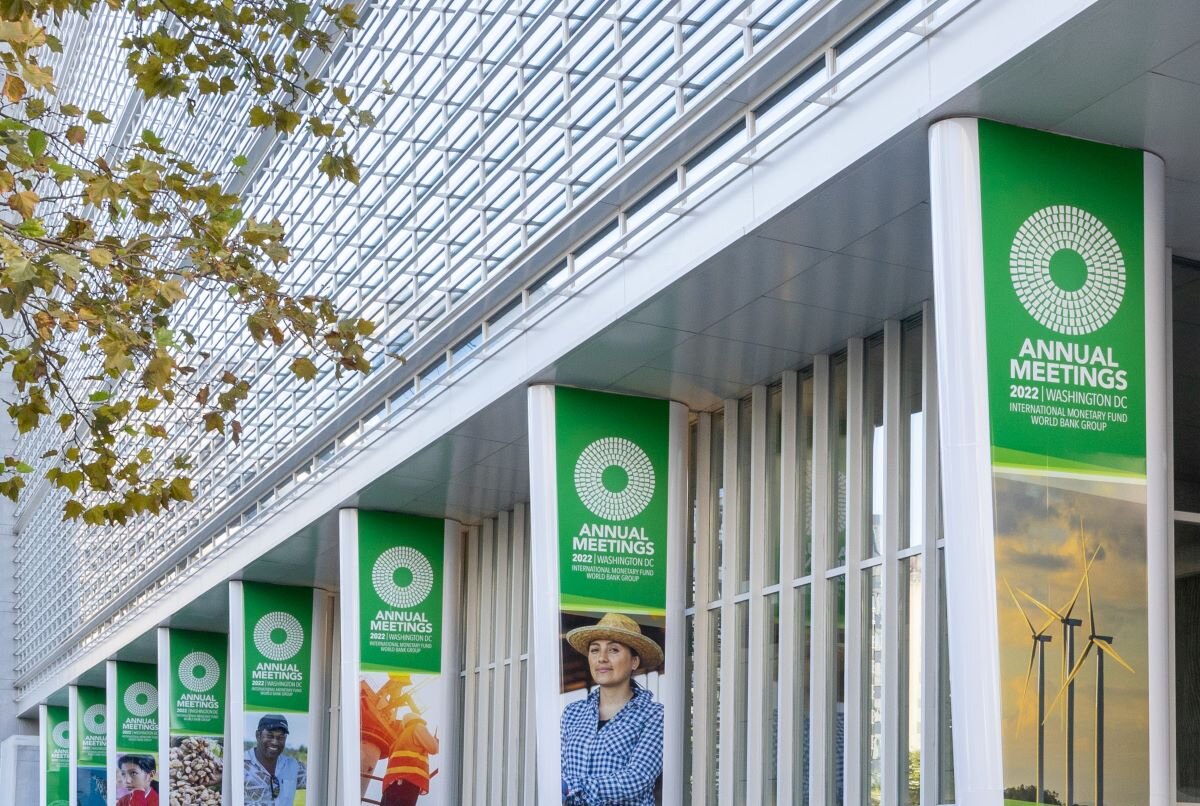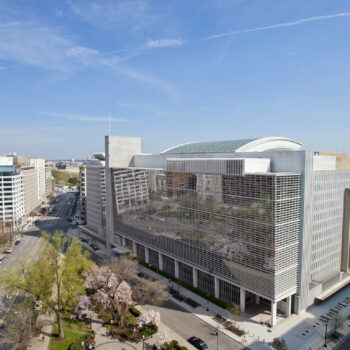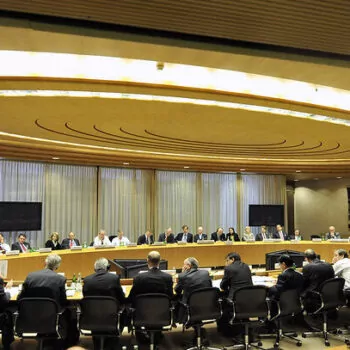International financial architecture must evolve faster to address severe and compounding economic shocks that are reversing development gains and undermining climate progress.
World Bank and International Monetary Fund (IMF) Spring Meetings are the chance to accelerate this evolution in three areas:
- The World Bank and its shareholders must show that its “Evolution Roadmap” will enable it to unlock billions of dollars needed to help address global challenges, including climate, health and migration.
- IMF management and its shareholders must show it is embarking on a step change to ensure it can strengthen the global safety net, to emerge from this economic crisis and build for the future.
- Finance and development ministers must build confidence that the global financial system will change, to ensure a fairer, more resilient and climate-safe future for all.
World Bank
The Evolution Roadmap process, positive signs on the Capital Adequacy Framework (CAF), and signals from President-designate nominee Ajay Banga are promising. We must see more of each to know we are on the path to long-lasting change. World Bank ambition will drive action in regional Multilateral Development Banks (MDBs) and national public banks.
Reforms proposed in the CAF review can unlock hundreds of billions of dollars of additional finance for global public goods. An extra $40 billion over 10 years is being proposed by the World Bank, but this is far below what we need – CAF implementation is the first step. A full evolution of the institution will require a fresh capital injection. European donors may have to plan for a selective capital increase due to limited US political will for replenishment. New capital injections into certain MDBs are much needed, particularly with the International Development Association’s (IDA) upcoming fiscal cliff. This should consider the MDBs’ relative performance on climate.
The Evolution Roadmap could shift the World Bank’s mission by adding sustainable and inclusive development to the goals of poverty reduction and shared prosperity. This would legitimise more lending for climate preparedness. The Development Committee communique and papers submitted to it by the World Bank are key things to watch.
The World Bank Evolution must be a consensus between developed and developing countries. It cannot be a process dominated by the US or other large shareholder countries.
Change in leadership
As Ajay Banga said, “climate action is about survival.” Banga will be a fresh pair of hands at the wheel of what we hope will be a greener, bigger, transformational and reformed World Bank leading a global response to global challenges. We look forward to this new start, which will accelerate the reform processes underway.
International Monetary Fund
The IMF has started to implement Kristalina Georgieva’s vision to support countries to address climate. It has also taken considerable action during Covid, issuing Special Drawing Rights (SDR) of SDR650bn – the largest ever undertaken – providing much-needed liquidity to the global financial system.
SDR issuance and the operationalisation of the Resilience and Sustainability Trust (RST) fund are good steps but need to reach a broader range of countries. Nonetheless, the IMF is only starting to take climate into account. It should consider its role within the wider global safety net and renew its collaboration with the World Bank to drive climate action. There are challenges though, as the IMF has yet to reconcile its business-as-usual approach to fiscal consolidation with the need for increasing climate investment.
The IMF’s role in “taking the temperature” of the global economy needs sharper tools that reflect changing risks and opportunities of climate change. Management and shareholders need to share a vision as the guardian of global economic and financial resilience, which includes addressing the climate crisis. The IMF must rapidly support countries exposed to climate crises and compounding shocks whilst ensuring support towards a clean economy.
Next steps
The Bridgetown Initiative jointly led by a coalition of Small Island Developing States (SIDS), Least Developed Countries (LDCs), Middle Income Countries (MICs) and the G7 has growing support and could result in transformational changes to the international financial architecture.
The Paris summit, hosted by President Macron and likely co-chaired by Prime Minister Modi, is the next opportunity to bring a north-south coalition together on a new global financing pact with the Global South.
Ministers should push existing agendas during the Spring Meetings, signalling what needs to be sorted at the Paris Summit and beyond to ensure necessary International Financial Institution reform to address global challenges.
For more insights, jump to another blog in this series:


